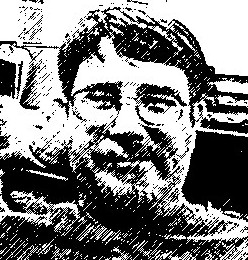The one thing that Mike Rowe says in this speech that really stuck out in my mind is where he said that the people who do these dirty jobs are the happiest, most well adjusted people he has ever met.
I work with my hands. The toughest jobs, the ones that take the most time and energy, the machine that everyone else has beat their heads against, the ones that you look at and say "You aren't going to beat me, people made you so I can fix you" are the ones that, at the end, you look back at and realize were the most satisfying.
As a contrast, take a look at the post below where David Brooks pontificates on the "educated class" and think about how many of them are so deeply unhappy that they press their unhappiness on everyone around them. Think about that for a moment, would you rather have beers with Todd Palin or martinis with John Kerry? Why? Who do you think is happier, way down deep in his gut?
I am a believer in education as a means to further yourself, but education without experience is nothing. I don't care where you got your education, but where you got your experience means a great deal to me. One of the biggest idiots I have ever met held a PhD from MIT in electronics, and one of the smartest people I know never finished high school and only got his GED to qualify for a better position in the job he held.
I am reminded of a passage in the Sherlock Holmes story "A Study In Scarlet", where Doctor Watson is astounded that Holmes had no concept of the Copernican theory of the composition of solar systems. From the book:
That any civilized human being in this nineteenth century should not be aware that the earth travelled round the sun appeared to me to be such an extraordinary fact that I could hardly realize it.
“You appear to be astonished,” he said, smiling at my expression of surprise. “Now that I do know it I shall do my best to forget it.”
Sherlock Holmes was perfectly content in not knowing about things that could not further his own efforts, likening the human brain to an attic that was stuffed with knowledge. "It is a mistake, " he explains, "to think that that little room has elastic walls and can distend to any extent. Depend upon it there comes a time when for every addition of knowledge you forget something that you knew before. It is of the highest importance, therefore, not to have useless facts elbowing out the useful ones.”I am also reminded of a piece in S.M. Stirling's book "Dies the Fire" where one of the main characters remarks that the fact that civilization had advanced to the place where people had the free time to dedicate to learning things like blacksmithing and swordsmanship merely as hobbies was going to be essential to living in a world where people would need to know these things in order to simply survive.
Mike gives you some fancy Greek words for discovery (anagnorisis) and realization (peripeteia). Real life gives you examples of it every day. Work gives you the means to discover those realizations.
Now get back to work, slackers.









No comments:
Post a Comment